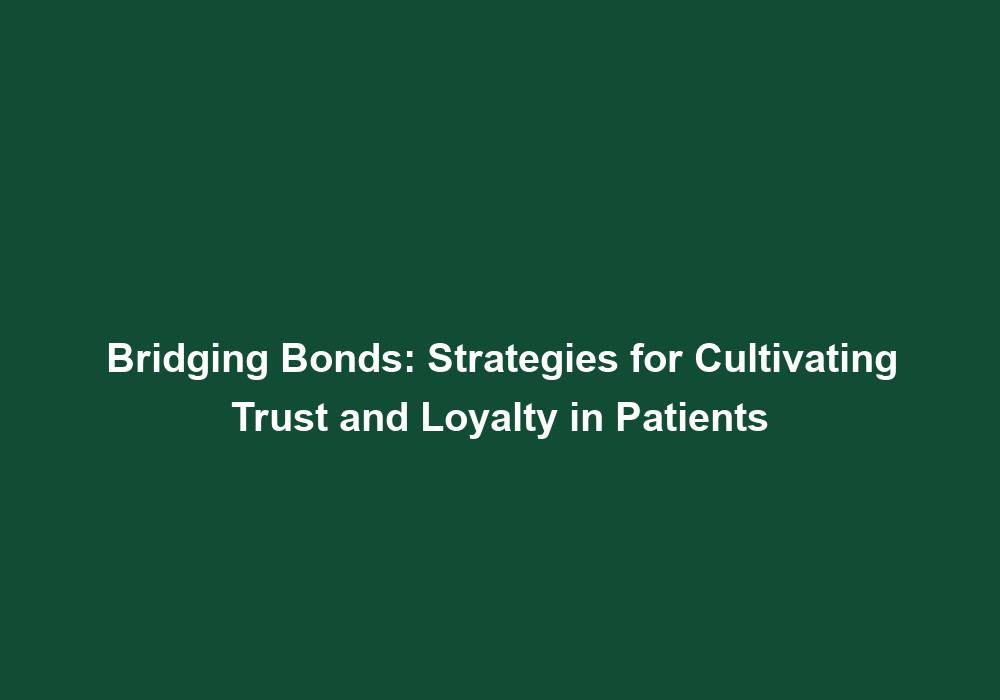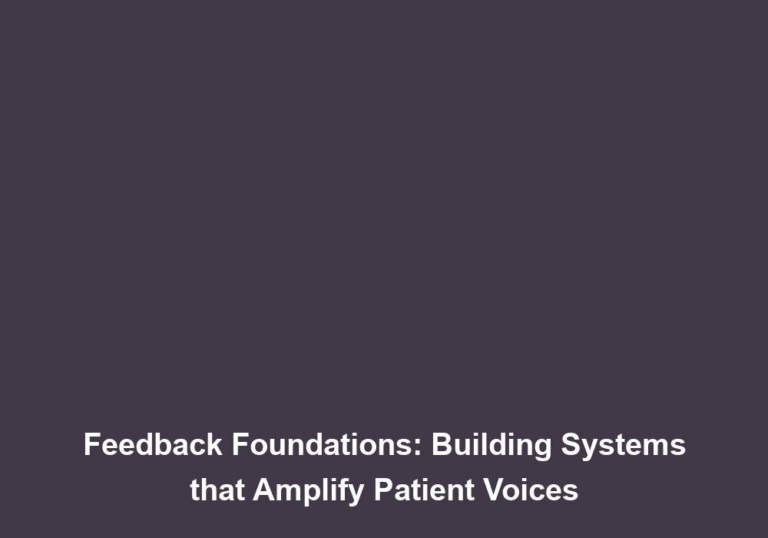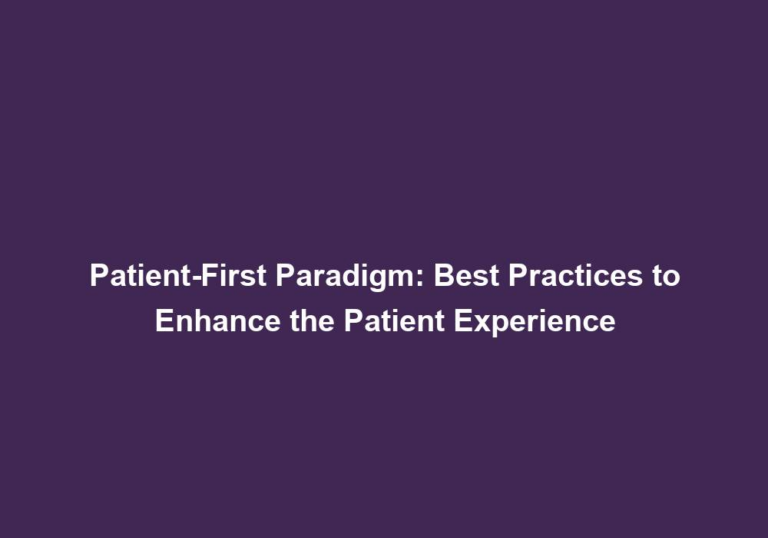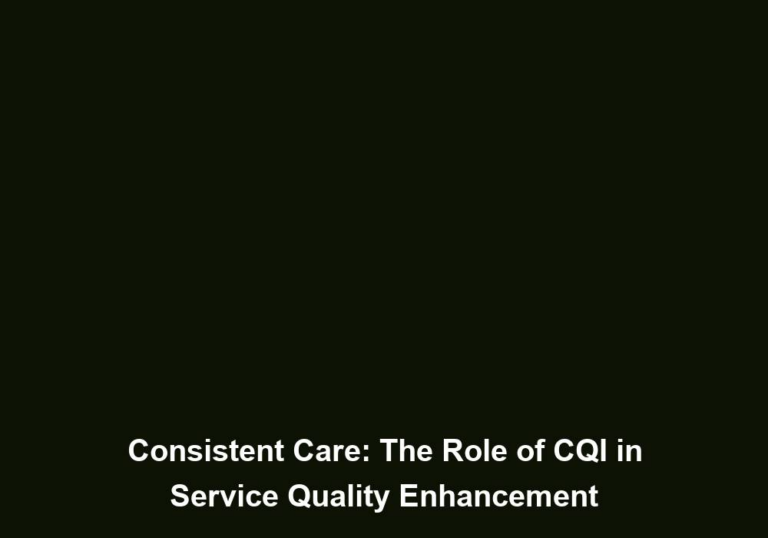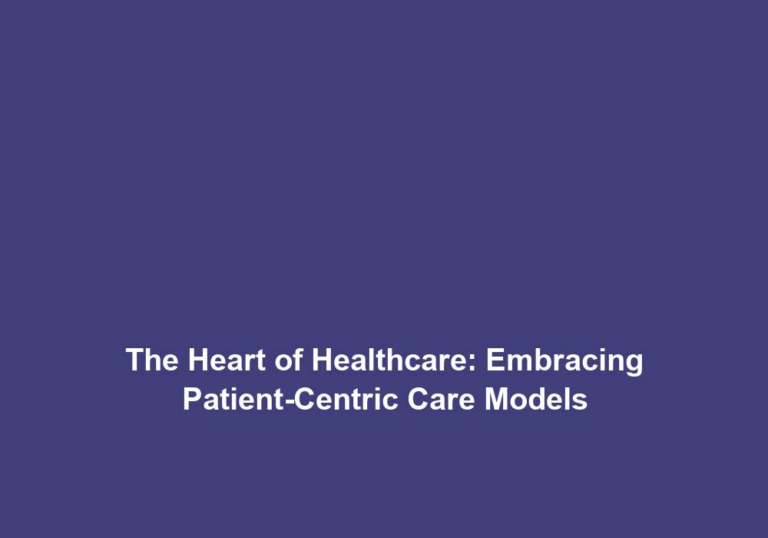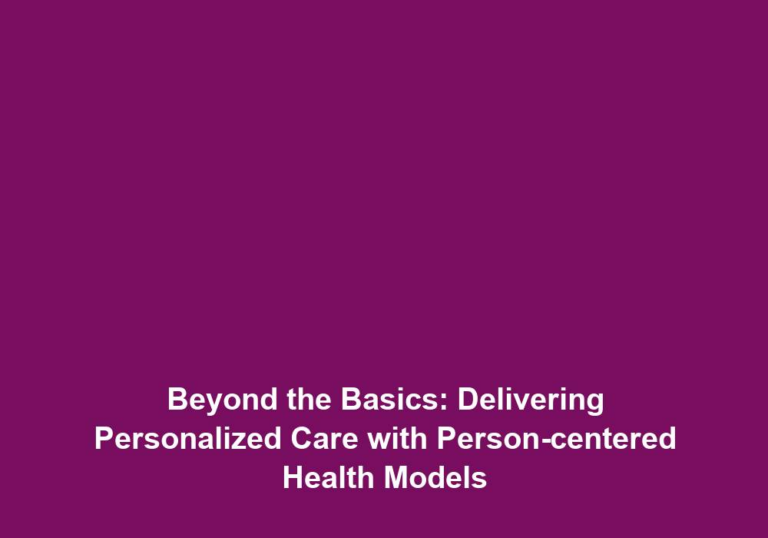Bridging Bonds: Strategies for Cultivating Trust and Loyalty in Patients
In the healthcare industry, building strong relationships with patients is essential for providing high-quality care and ensuring their trust and loyalty. Trust and loyalty form the foundation of successful patient-provider relationships, leading to better health outcomes, increased patient satisfaction, and improved healthcare delivery overall. This article explores effective strategies to cultivate trust and loyalty in patients, empowering healthcare providers to create lasting bonds with their patients.
1. Effective Communication: The Key to Trust
Clear and effective communication is vital to establishing trust and building strong relationships with patients. It involves active listening, empathy, and ensuring that patients feel understood and valued. Healthcare providers should prioritize the following communication strategies:
Active Listening and Empathy
Active listening involves giving your full attention to the patient, focusing on their concerns, and responding empathetically. By acknowledging their emotions and experiences, you create a safe and supportive environment for open dialogue. This allows patients to feel heard and understood, which strengthens the bond of trust between them and the healthcare provider.
Clear and Jargon-Free Language
Using simple and jargon-free language helps patients understand their health conditions, treatment plans, and medical procedures better. This fosters trust and minimizes misunderstandings, promoting patient engagement and empowerment. When healthcare providers use clear and easily understandable language, patients can make informed decisions about their care and actively participate in their treatment.
Patient Education
Educating patients about their health conditions, treatment options, and prevention strategies builds trust by empowering them to make informed decisions about their care. Provide educational materials, resources, and clear explanations to enhance their understanding and involvement in their own health. Patient education helps patients feel more confident in their healthcare decisions and strengthens their trust in the healthcare provider.
- Provide informative brochures or pamphlets that explain complex medical terms and procedures.
- Offer online resources, such as videos or articles, that patients can access at their convenience.
- Schedule regular educational sessions or workshops to address common health concerns and answer patient questions.
2. Establishing Personal Connections
Cultivating trust involves going beyond clinical interactions and establishing personal connections with patients. Demonstrating genuine interest and care helps patients feel valued and fosters loyalty. Consider the following strategies to establish personal connections:
Building Rapport
Take the time to get to know your patients beyond their medical history. Show genuine interest in their lives, hobbies, and experiences. Remember and inquire about important events, such as birthdays or anniversaries, to show that you value them as individuals. Building rapport allows patients to feel comfortable and develop a sense of trust with their healthcare provider.
- Engage in small talk during appointments to create a friendly and relaxed atmosphere.
- Use open-ended questions to encourage patients to share more about themselves.
- Remember personal details and follow up on previous conversations to show that you genuinely care.
Cultural Sensitivity
Respecting and embracing patients’ cultural backgrounds and beliefs is essential for building trust. Cultural sensitivity helps providers understand the unique needs and preferences of diverse patient populations and ensures that care is personalized and inclusive. By acknowledging and respecting cultural differences, healthcare providers can create a welcoming environment where patients feel understood and valued.
- Learn about different cultural practices and beliefs to better understand your patients’ perspectives.
- Adapt your communication style and treatment approach to align with cultural norms and preferences.
- Collaborate with interpreters or cultural liaisons to bridge language and cultural barriers.
Continuity of Care
Consistency in healthcare providers builds trust and loyalty. Where possible, strive to maintain continuity of care by ensuring patients see the same provider or a coordinated team. This familiarity helps patients feel more comfortable discussing their healthcare concerns openly. Continuity of care also allows healthcare providers to develop a deeper understanding of their patients’ health needs and preferences.
- Establish a system that assigns patients to a primary healthcare provider or team for ongoing care.
- Share patient information and treatment plans within the healthcare team to ensure consistent and coordinated care.
- Communicate with patients about any changes in their healthcare provider or team to minimize disruptions and maintain trust.
3. Engaging Patients in Decision-Making
Empowering patients to actively participate in their healthcare decisions promotes trust and loyalty. Involving them in the decision-making process increases their confidence, satisfaction, and overall engagement. Consider the following strategies for patient engagement:
Shared Decision-Making
Collaborate with patients to establish treatment goals and develop care plans. Explain the available options, benefits, and risks, allowing patients to make informed decisions that align with their values and preferences. This shared decision-making approach promotes trust and improves patient satisfaction. By involving patients in the decision-making process, healthcare providers demonstrate respect for their autonomy and establish a partnership based on trust.
- Clearly explain the different treatment options, including their potential outcomes and side effects.
- Encourage patients to ask questions and express their concerns to ensure their voices are heard.
- Provide decision aids, such as written materials or online resources, to support patients in making informed choices.
Patient Feedback
Encourage patients to provide feedback on their healthcare experiences. Actively listen to their suggestions, concerns, and complaints, and take appropriate action to address them. Demonstrating a commitment to continuous improvement shows patients that their opinions matter and strengthens their trust in your practice. Patient feedback is a valuable source of insight and can help identify areas for improvement in patient-provider relationships.
- Implement regular surveys or feedback forms to gather patient opinions and suggestions.
- Assign a dedicated staff member to handle patient feedback and ensure timely responses.
- Share any changes or improvements made based on patient feedback to demonstrate the value placed on their input.
Technology and Patient Portals
Leverage technology to enhance patient engagement. Patient portals and mobile apps provide convenient access to health information, appointment scheduling, and secure messaging. Empowering patients with tools to manage their health promotes trust and active involvement in their care. Technology can facilitate communication, education, and self-management, allowing patients to take a more active role in their healthcare journey.
- Offer a patient portal where patients can access their medical records, test results, and treatment plans.
- Provide educational resources and interactive tools through online platforms to support patient learning and self-care.
- Utilize secure messaging platforms to enable direct communication between patients and healthcare providers.
4. Ensuring Privacy and Confidentiality
Respecting patient privacy and maintaining confidentiality are critical for building trust. Patients need assurance that their personal health information is secure and protected. Consider these practices to safeguard patient privacy:
Adherence to HIPAA Regulations
Strictly adhere to the Health Insurance Portability and Accountability Act (HIPAA) regulations to protect patient privacy. Train staff on proper handling of patient information, secure electronic health records, and establish protocols to prevent unauthorized access. By complying with HIPAA regulations, healthcare providers demonstrate their commitment to maintaining patient confidentiality and earn their trust.
- Conduct regular training sessions to educate staff on HIPAA regulations and best practices for data protection.
- Implement strict access controls and password policies to prevent unauthorized access to patient information.
- Regularly audit and monitor systems to identify and address any potential security breaches.
Transparent Privacy Policies
Clearly communicate your privacy policies to patients. Provide them with written materials that outline how their personal information is handled, stored, and shared. This transparency builds trust and demonstrates your commitment to safeguarding their privacy. By openly sharing your privacy policies, patients can feel confident that their information is being handled responsibly and securely.
- Develop easy-to-understand privacy policy documents that clearly explain how patient information is used and protected.
- Make privacy policies readily available on your website, in waiting areas, and during initial patient consultations.
- Train staff to explain privacy policies to patients and address any questions or concerns they may have.
Secure Communication Channels
Utilize secure communication channels, such as encrypted emails or secure messaging platforms, for discussing sensitive patient information. This ensures that the exchange of personal health information remains confidential and secure. Secure communication channels provide patients with peace of mind, knowing that their private information is being transmitted and stored securely.
- Implement secure email systems that encrypt messages containing sensitive patient information.
- Utilize secure messaging platforms that require authentication and encryption for all messages.
- Educate patients on the importance of using secure communication channels when discussing sensitive health information.
By implementing these strategies, healthcare providers can actively cultivate trust and loyalty in their patients. Building strong patient-provider relationships contributes to improved health outcomes, increased patient satisfaction, and a more effective healthcare system overall. Remember, trust is earned through consistent, compassionate, and patient-centered care.

